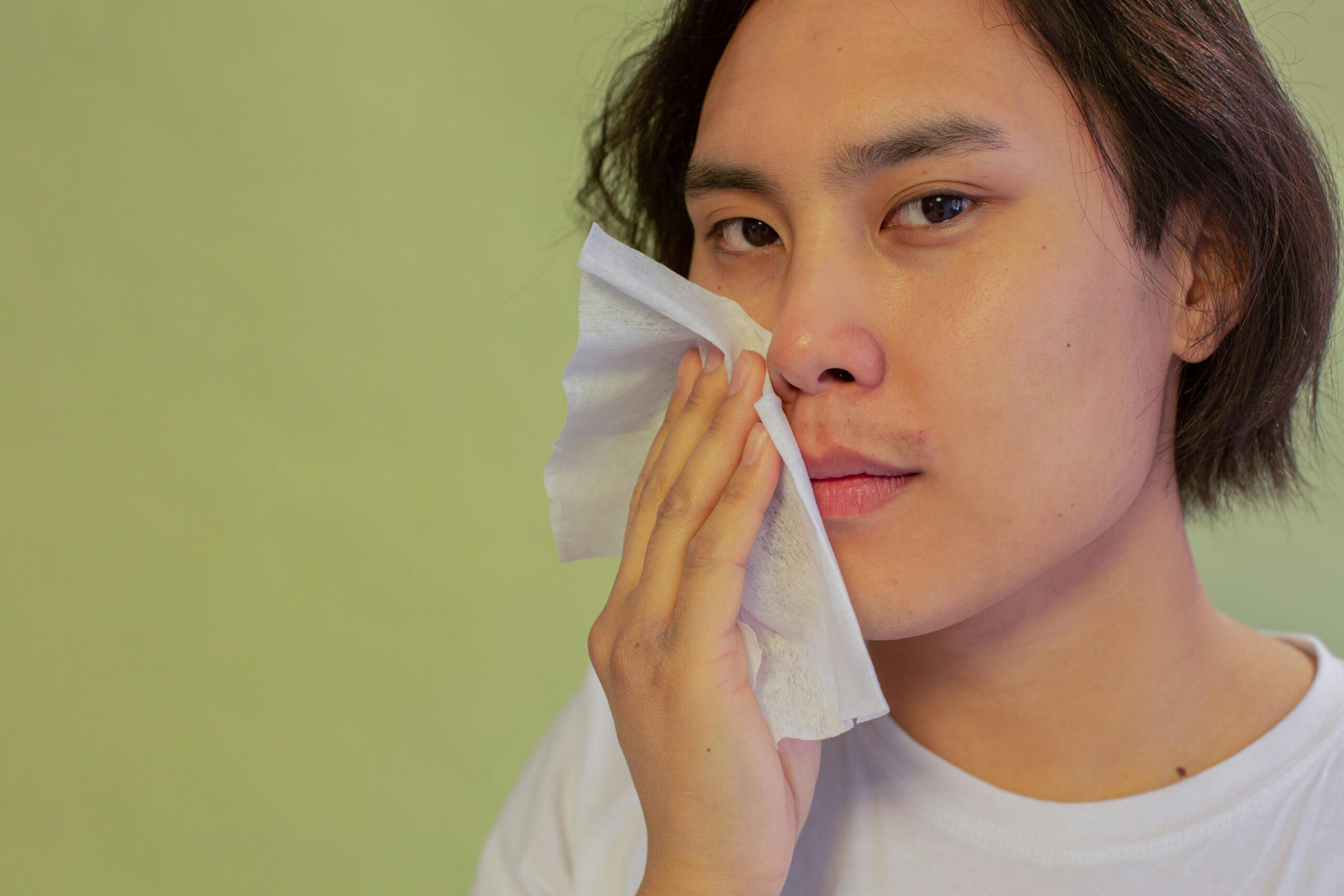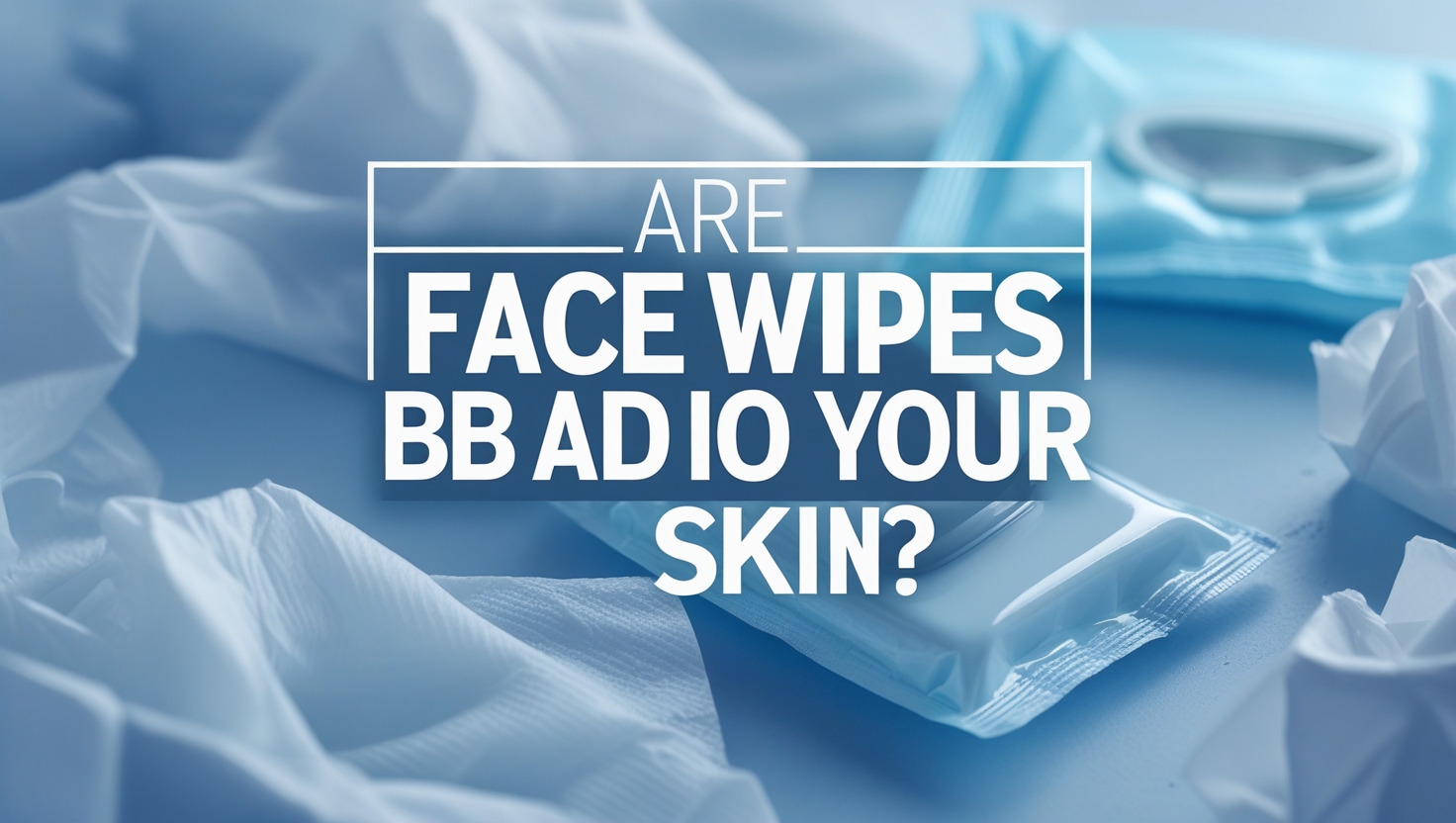Are Face Wipes Bad for Your Skin?
Are face wipes bad for your skin? Explore expert advice, ingredients, side effects, and healthier alternatives for glowing, balanced skin.
Are Face Wipes Bad for Your Skin | Face Wipes Good or Bad
Table of Contents
- What Are Face Wipes and How Do They Work?
- Ingredients Commonly Found in Face Wipes
- Do Face Wipes Clean Skin Effectively?
- Dermatologist Opinions on Face Wipes
- Can Face Wipes Damage the Skin Barrier?
- Impact of Face Wipes on Sensitive Skin Types
- Acne, Irritation, and Long-Term Use Concerns
- Face Wipes and the Environmental Toll
- Healthy Alternatives to Face Wipes
- Micellar Water vs. Face Wipes
- Double Cleansing: The Better Option
- How to Transition Away from Face Wipes
- When Face Wipes Might Be Useful
- Are Natural or Organic Face Wipes Better?
- DIY Cleansing Methods at Home
- Fragrance and Preservatives in Wipes
- Understanding the Role of Skin pH
- Skin Conditions and Why Wipes Might Worsen Them
- Social Media vs. Scientific Truth
- Final Verdict: Are Face Wipes Bad for Your Skin?
What Are Face Wipes and How Do They Work?
Face wipes, or cleansing wipes, are pre-moistened disposable cloths used to clean the skin. Marketed for makeup removal, sweat cleansing, or travel use, they offer quick convenience. Most are soaked in cleansing liquids that aim to break down oils, dirt, and impurities. Despite their ease, they raise major concerns for long-term skincare.

Ingredients Commonly Found in Face Wipes
Face wipes often contain a mix of surfactants, emulsifiers, preservatives, fragrance, alcohol, and sometimes moisturizing agents. Ingredients like phenoxyethanol, parabens, and synthetic fragrances can irritate sensitive skin. Alcohol-based formulas dry out the skin while stripping its natural oils, disrupting the microbiome.
Do Face Wipes Clean Skin Effectively?
Face wipes only remove surface-level impurities. They may lift makeup or dirt but fail to cleanse deeply. The wiping motion can push debris into pores, leading to congestion. Dermatologists agree that they do not replace a proper face wash. Relying on them daily leaves residue that can clog pores and dull skin over time.
Dermatologist Opinions on Face Wipes
Skincare experts warn against using face wipes regularly. Dr. Shari Marchbein, a New York-based dermatologist, notes that wipes don’t properly cleanse skin. Dr. Mona Gohara from Yale states they should be used only when necessary, not as part of a daily routine. The chemicals and preservatives in wipes can disrupt the skin’s protective barrier.
Can Face Wipes Damage the Skin Barrier?
Yes, frequent use can weaken your skin barrier. Wipes with alcohol or harsh surfactants strip natural lipids that maintain hydration and protect against irritants. This leads to dryness, sensitivity, and inflammation. A compromised barrier also makes the skin more vulnerable to pollutants and bacteria.
Impact of Face Wipes on Sensitive Skin Types
Those with rosacea, eczema, or acne-prone skin are particularly affected. Preservatives and fragrances in wipes often trigger flare-ups. Sensitive skin reacts to even mild irritants, and repeated use of face wipes may worsen the condition. Dermatologists recommend gentle cleansers without sulfates or artificial scents instead.
Acne, Irritation, and Long-Term Use Concerns
Long-term use of face wipes is linked to acne, blackheads, and general irritation. Incomplete cleansing leaves buildup, and rough handling can cause micro-tears in the skin. These issues often appear as rashes, red patches, or stinging after use. Skipping post-wipe moisturizers worsens dehydration and imbalance.
Face Wipes and the Environmental Toll
Most face wipes are not biodegradable. Made with polyester or polypropylene, they contribute significantly to landfill waste and sewer blockages. Many people flush wipes, causing damage to plumbing and ecosystems. Environmentally conscious consumers are moving to reusable cloths and washcloths.
Healthy Alternatives to Face Wipes
Micellar water, gentle oil cleansers, and reusable cloth pads are safer options. These methods clean more thoroughly without irritation. Hydrating cleansers with ceramides or glycerin also support skin health. Double cleansing—starting with oil, followed by a water-based wash—is the gold standard.
Micellar Water vs. Face Wipes
Micellar water contains micelles that attract dirt and oil like magnets. It requires minimal rubbing and contains fewer harsh ingredients. Unlike wipes, it doesn’t rely on synthetic materials that harm the environment. Though it’s gentle, dermatologists still suggest rinsing afterward.
Double Cleansing: The Better Option
Double cleansing uses two steps: an oil-based cleanser to dissolve makeup and sunscreen, followed by a gentle foaming cleanser. This method is far more effective at removing residue and supports your skin’s natural balance. It’s especially helpful for those using SPF, foundation, or waterproof makeup.
How to Transition Away from Face Wipes
Start by limiting wipes to emergency use. Replace them with micellar water or a mild cleanser and reusable pads. Introduce hydrating ingredients like hyaluronic acid or aloe vera to soothe the skin during the switch. Cleanse gently and avoid scrubbing.
When Face Wipes Might Be Useful
Face wipes may be helpful during travel, outdoor events, or post-gym when immediate cleansing isn’t possible. Use unscented, alcohol-free versions, and always follow with moisturizer. They are a temporary solution—not a daily skincare staple.
Are Natural or Organic Face Wipes Better?
Natural or organic wipes may reduce exposure to synthetic irritants, but they still don’t provide deep cleansing. Even botanical ingredients can be allergens. Always patch-test and check ingredient lists. The safest choice remains proper washing with skin-balanced products.
DIY Cleansing Methods at Home
Oil cleansing with olive, coconut, or jojoba oil followed by warm water and a microfiber cloth is gentle and effective. You can also create herbal toners with rosewater or chamomile tea to soothe irritated skin. These methods maintain hydration and promote skin repair.
Fragrance and Preservatives in Wipes
Synthetic fragrance is one of the top causes of cosmetic allergies. Many wipes include preservatives like parabens, phenoxyethanol, or methylisothiazolinone—all potential irritants. Avoid products that list “parfum” or “fragrance” without disclosing the source.
Understanding the Role of Skin pH
Healthy skin has a slightly acidic pH around 4.7 to 5.5. Wipes often disrupt this balance due to alkaline ingredients. This weakens the acid mantle, a protective layer that guards against bacteria and moisture loss. Balanced pH cleansers are better for long-term health.
Skin Conditions and Why Wipes Might Worsen Them
People with skin conditions should be especially cautious. In rosacea, wipes trigger redness and flare-ups. For acne, residue buildup clogs pores. Eczema sufferers may experience intense dryness or rashes. Professional advice always leans toward water-based cleansing with minimal ingredients.
Social Media vs. Scientific Truth
Influencers often promote wipes for fast results, but lack scientific backing. Dermatologists base advice on years of research and clinical trials. Always prioritize medically supported recommendations over trends. Skincare should be intentional, not impulsive.
Best Dermatologist in Islamabad F10 | Islamabad Best Aesthetics Clinic in F10
Final Verdict: Are Face Wipes Bad for Your Skin?
In summary, face wipes are not suitable for everyday use. Their convenience comes at the cost of compromised skin health. While they may offer temporary relief, their long-term effects include irritation, barrier damage, and increased environmental waste. For optimal skin, rely on gentle cleansers, thorough rinsing, and proper hydration. Face wipes are best left for emergencies—not your daily skincare routine.







One thought on “Are Face Wipes Bad for Your Skin? Full Truth Revealed”